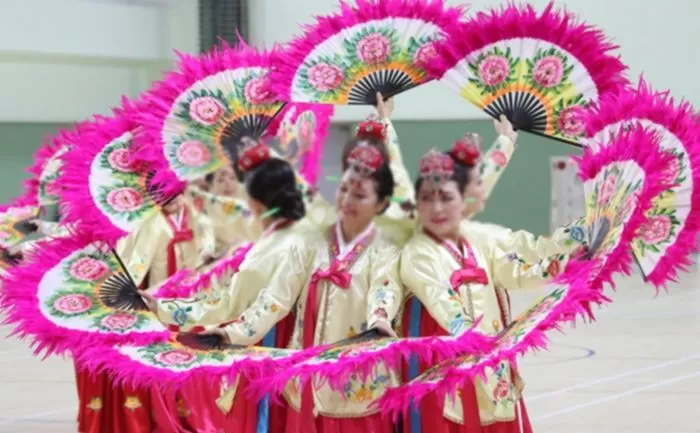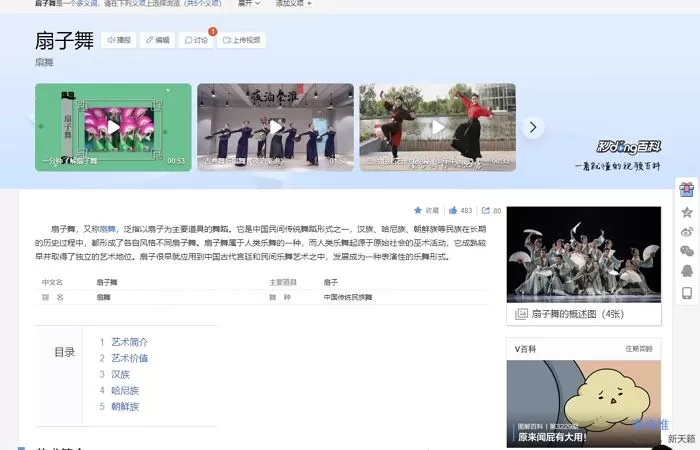
China has begun claiming that, following Korea’s kimchi and hanbok, fan dance is Chinese culture.
It is said that the fan dance of Korea is regarded as one of the traditional cultures of China as it is regarded as the culture of the Korean-Chinese.
On the 6th, the cyber diplomatic mission ‘Bank’ produced a poster to inform that fan dance is Korea’s cultural heritage.
Vank released a poster in English and Korean to promote the fan dance, saying, “No matter how much it is packaged as Chinese culture, fan dance is Korean culture.”

According to Vank, if you search for ‘fan dance’ on China’s largest portal site Baidu, you will find that “It is one of the traditional Chinese folk dance forms in which ethnic groups such as Han, Hani, and Korean people have formed different characteristics over a long history.”
Baidu explained that the Korean-Chinese fan dance, in particular, “was derived from traditional Korean shamanism, and later developed into a performance dance. It expresses the unique rhythm of the Korean-Chinese, implicit but invisible inner emotion, curvilinear rhythm, and free performance.”
Vank said that Baidu’s explanation like this can confirm that the Korean-Chinese culture belongs to China because the Korean-Chinese in China is a member of China, and based on this, they claim that the fan dance is also their own.

This is not the first time China has claimed Korean culture as its own.
Earlier, China’s state-run media, Global Times, had published a claim to the effect that “the controversy over hanbok and kimchi originated from the same historical origin of the two countries.”
At the opening ceremony of the 2022 Beijing Olympics, a woman wearing a hanbok appeared as a Chinese minority holding a five-star red flag.
Vank said, “The fan dance is a traditional Korean dance that has grown in the modern and modern process. It is a representative performing art of Korea that has a deep Korean sentiment.”
They also asked to join the global petition to stop China’s cultural imperialism.


